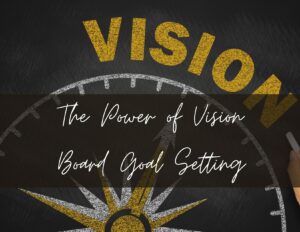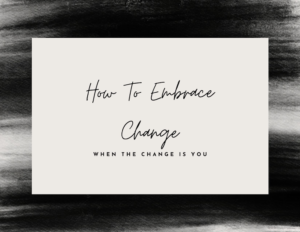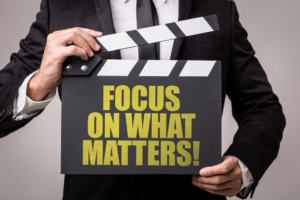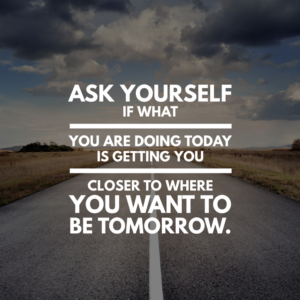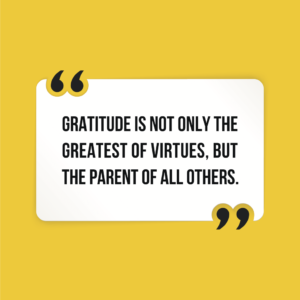With so much focus on building confidence, especially as a leader, it can be easy to forget the importance and power of humility. While humility often lives in the shadows of confidence, the sign of a truly confident individual and leader is one who operates in humility first. Practicing humility is also a surefire way to ensure that you don’t fall victim to becoming arrogant or overly confident. Whether you want to become more confident or recognize that you have a tendency to dabble in self-importance, practicing humility will benefit you in your personal and professional life.
Why Embrace the Power of Humility
Humility, indeed, is a skill that can be taught [whether the most arrogant among us want to learn humility or not is another article for another time]. Further, the power of humility can be harnessed to improve personal and professional outcomes. If you could use a little extra convincing as to the benefits of prioritizing humility over confidence, the following three advantages pay dividends ten times over:
Humble Leaders and Individuals Are More Approachable
By being approachable, folks are much less likely to be intimidated by you. When people feel comfortable around you, they are more likely to be creative, develop deeper relationships, and take risks with you. Thus, the more approachable you are the better results you can achieve in your endeavors.
If a direct report, colleague, or friend doesn’t feel like they can initiate an unsolicited conversation with you to share what’s on their mind—good, bad or indifferent, that’s a missed opportunity. It could come at a real cost to you, your project, or organization. We don’t know what we don’t know. Therefore, we must count on others to willingly share what they know with us. You can certainly be inquisitive and information-gather on your own, but the best ideas are often unsolicited.
Humility Leads to Compassion for Others
I truly believe that it is only through a healthy dose of humility that you can truly be empathetic and compassionate with others. When it takes a village to make most things happen, being compassionate is a critical ingredient of successful relationship building—especially when it comes to folks you manage. Further, the benefits of compassion to self and others are numerous.
Compassion is related to courage, happiness, motivation, improved physiological responses and well-being, job satisfaction, organizational commitment, and emotional vigor. Compassionate behavior is even linked to increased self-esteem. Where self-esteem is high, confidence follows. Learn more about compassion and empathy in this article in Positive Psychology by Dr. Heather S. Lonczak.
Practicing Humility Keeps You Grounded
A grounded person has high potential for consistently being the MVP of any team. Does anything else need to be said? If you aspire to be a leader, being a grounded person can put you on a trajectory to leadership. Grounded individuals are admired for the following qualities:
- Unshakeable during crisis
- Reliability
- Unwavering moral compass
- Being humble
- A healthy self-esteem
- Less likely to worry
- Standing up for what’s right
- Not conforming to make people like them
- Encouraging others to succeed
To learn more about the above nine traits of grounded people, check out this pithy article.

Harness the Power of Humility
Like most things in life, practice makes progress. So, if you want to begin practicing humility in order to harness the power of humility in your everyday life, here are nine tips to help you get there.
Take Inventory of Your Mistakes for Future Reference
No matter how much you plan, mistakes can still happen—even to the most detail-oriented of us. Making mistakes keeps us humble and mitigates misguided or inaccurate attributions. Attribution in psychology works like this example:
When I run late to a commitment, it’s because of external forces such as car trouble, traffic, or something unexpected happens. In other words, it’s not my fault.
When you run late to a commitment, it’s because of internal flaws such as being lazy, not taking your commitments seriously, or poor work ethic. So, it’s you and who you are as a person.
You can learn more about the psychology of attribution here. You making mistakes can truly be a gift—and can teach you all sorts of valuable lessons. Humility is certainly one of them. Your mistakes can serve as a reminder that even when you robustly prepare, put forth your best effort, and do everything right, something can still go wrong. This teaches you to extend grace to those around you when they fall short or make a mistake. As a result of your mistakes, you have the awareness and experience to know that mistakes can and will happen to the best of us. Thus, you’ll be more adept at being empathetic, compassionate, understanding, and extending grace.
Be Willing To Fall Flat on Your Face
As one of my favorite artists, Aerosmith, so brilliantly captures in Dream On, “You got to lose to know how to win.” There is no better way to eat humble pie than falling flat on your face. In other words, you must be willing to be bad at something first in order to get good at it.
By getting out of your comfort zone, trying new things, stretching beyond your current limitations, and taking strategic risks, you can learn a lot. It takes courage, vulnerability, resilience, and perseverance to be willing to fall flat on your face—especially where other’s will bear witness to your shortcomings, flaws, or imperfections. This positions you to appreciate the mental fortitude it takes to exert valiant effort and be supportive of others when they do the same.
Accept Your Limitations
You can be terrific at lots of things, but it’s unlikely that you will be terrific at everything. Further, when you take for granted that you excel at something, life has a way of disrupting your winning streak. By acknowledging and accepting that you have limitations, you can create space for others to shine and be the hero of the day. Moreover, you can cut yourself some slack.
By learning to do this for yourself, you can do the same for others. In addition, you can amplify your impact by tapping a network or team of individuals with different strengths and capacities to create synergy. In other words, you’ll always end up with something greater than the sum of the separate individual parts. You can explore other benefits to knowing your limitations in this other article I wrote.
Swallow Your Pride
You should never be the smartest person in the room. And even if you genuinely are, know that you’re truly not. While you might be the smartest person in the room about a particular topic, there are other individuals who are the smartest in the room when it comes to other topics or aspects of the task at hand. Further, just because you might be an expert on said topic, it doesn’t mean that there isn’t something yet to be uncovered or revealed by an outsider.
By swallowing your pride, you’ll gain efficiency at valuing and respecting the insights, opinions, and perspectives of others, no matter how different from your own. Listen to and respect what others bring to the table. When you don’t always have to be right or be the star of the show, you can redirect your focus to a greater purpose or mission. You might even learn a thing or two.
Be Transparent
Sharing what you know is important. It’s equally important to share what you don’t know. By disclosing the information you know and don’t know—barring any limitations of confidentiality—you are positioning yourself and those around you to make the best possible decisions. Even if you have additional confidential information you can’t share, I tend to be in favor of disclosing what elements fall under confidentiality so that folks have the best understanding of what falls within in the locus of their control. In other words, you can avoid wasting folks’ time. There is no greater sign of respect than valuing an individual’s time.
Be vulnerable
Embrace your humanness. We are all imperfect human beings figuring life out as we go. It’s okay to let individuals, especially your team in a work environment, see other sides of you. This can be anything from grief to failure to pride to your fun side. There is no better way to build trust and meaningful relationships than to let your guard down a little. Moreover, when you are in a position of power, it reassures those around you that they can be open with you. As a result, they will feel safe and free from judgement.
Think We and Not Me
Nobody accomplishes anything on their own. Whether someone inspired you, mentored you, lent you a helping hand, or challenged you, there are no solo endeavors in life. While you will surely be the one to do your work alone, there are so many others to acknowledge for their contributions when a task or project is complete.
By expressing gratitude to the individuals who contribute to your efforts, you acknowledge their value by demonstrating your awareness of their effort and contributions. Moreover, when folks know that you are genuinely appreciative of their time and effort, and that you value them and their contributions, they will be more likely to stick with you and help you in the future. Learn more about the myriad benefits of practicing gratitude in this article.
Focus on Others
Pay attention to what others need and how you can lift them up and make them shine. By removing your ego from the equation, it makes room to cultivate those around you so that they can rise to any occasion. Invest time in your team, network, and friendships. Actively listen to their stories, experiences, needs, and desires. See them for their unique attributes and perspectives.
Whenever possible, you can also find opportunities to acknowledge and celebrate them. By intentionally carving out time to focus on others, you will learn more about how to best support them and create opportunities for them to shine. This builds trust and healthy loyalty.
Leverage the Strengths of Those Around You
When you pay attention to those around you, you are positioned to leverage their strengths. You will accomplish more as a team than you ever could as an individual. Take inventory of people’s strengths and tap the right people for the right task. Moreover, you can design experiences and opportunities around the strengths of those around you. Your intentionality with leveraging the strengths of those around you demonstrates keen awareness, genuine thoughtfulness, and a collaborative spirit.
In Summary
Practicing humility does not mean dimming your shine. Instead, your modesty enables you to step into confidence organically. When people approach you, it’s because they trust you, your judgement, and experience. When you are compassionate, people feel safe around you and are not worried about being judged by you. As a grounded individual, people are willing to follow you if you choose to lead. Humility might be less glamorized than confidence, but without it you might find that your leadership effectiveness suffers. Like an anti-scald valve set too low that prevents you from getting sufficiently hot water, the power of humility lies in the tiniest of tweaks that can take your confidence and leadership to the next level.
CHECK-IN
1. How might practicing humility make you more confident?
2. What do you find most challenging about leveraging the power of humility?
3. What is a positive experience you had from embracing the power of humility?











